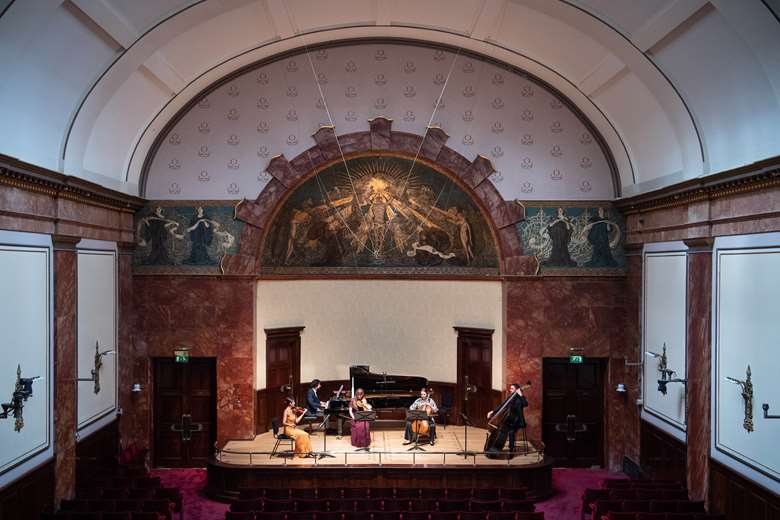Wigmore Hall International String Quartet Competition opens tomorrow
Sponsored
Monday, April 4, 2022
Find out more about the prestigious triennial competition - and how you can watch it

The 2022 edition of the prestigious Wigmore Hall International String Quartet Competition opens tomorrow. The initial preliminary round will take place at London’s Guildhall School of Music and Drama before the event moves to the famed London chamber music venue itself later in the week.
Over the first two days (held at the Guildhall), ensembles will present a recital programme featuring cornerstones of the repertoire – a late Mozart quartet paired with a major 20th-century quartet. On Thursday, they will then present their second recital programme at Wigmore Hall, consisting of a Haydn quartet alongside Nine Fragments – String Quartet No 4 by Sally Beamish, and which will be streamed live: click here. These first two rounds are free at attend (and you can also hear Beamish and the Carducci Quartet explore the composer's work at the Guildhall School of Music and Drama on Wednesday afternoon: details here).
Saturday sees the semi-finals - tickets for this round can be bought here - in which at least six quartets selected by the jury will perform one of their two choices of 19th-century repertoire. At the end of the evening, the jury will select at least three quartets to proceed to the Final, which takes place on Sunday evening, and when the remaining ensembles will each play one of their two choices of Beethoven quartet. The concert will be followed by the Prize-Giving ceremony at approximately 9pm. For tickets to the final, visit here.
The prestigious triennial competition traces its roots back to 1979, when the then unknown Takács Quartet triumphed at the event held in Portsmouth. Held by the Wigmore Hall since 2010, and open to ensembles comprising players aged below 35 years, it allows quartets to demonstrate their musicality across the breadth of the genre’s repertoire, from classical to contemporary.
Gábor Takács-Nagy, one of the founder members of the Takács Quartet, expressed how valuable winning the Competition was for the group: ‘It gave us confidence and we saw that all the work was worthwhile … the first prize changed our life … You somehow believe in yourself more, and if you believe in what you are doing you are probably stronger. Some people say that music is not sport, music is not for competitions. But on the other hand, I know preparing for a competition requires enormous dedication and motivates young quartets to work hard.’
For this week’s Gramophone Podcast, Editor-in-Chief James Jolly was joined by Wigmore Hall's Director John Gilhooly and the viola-player of the Doric Quartet, Hélène Clément, to learn about the competition and also about what life is like in a leading quartet. You can listen below.







